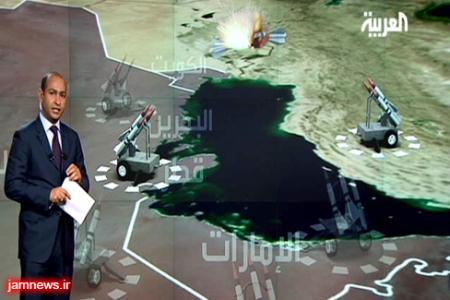Iran-Arab Relations and the Missile Defense Shield in the Persian Gulf
Israel is looking to provoke the Arabs against Iran

The GCC-US Strategic Cooperation Forum in Riyadh caught Iran’s attention when Hillary Clinton, the US Secretary of State, and Saud Al-Faisal, the Saudi Foreign Minister, announced the start of expert analysis on the establishment of a missile defense shield in Persian Gulf countries, in their joint press conference in Riyadh. This announcement was met with the reaction of Ahmad Vahidi, the Iranian Defense Minister. We discussed this issue with Dr. Hossein Alaei, an expert on strategic affairs and a former commander in the Revolutionary Guards Corps.
Iranian Diplomacy: The US Secretary of State recently proposed a powerful mutual missile defense shield in the Persian Gulf to the six member nations of the GCC. How do you evaluate the goals of the GCC’s military cooperation with the US as a whole?
Hossein Alaei: The US’ principal goal is to maintain control of oil and gas resources in the Persian Gulf and ensure the continuation of energy transfer from the Persian Gulf toward industrial countries. The US considers the Persian Gulf as part of its vital interests and has taken control of the southern part of this important sea through the dispatch of its aircraft carriers and warships there in the past 25 years. The GCC acts completely in accordance with the US’ plans in military and security issues and is under the control of American policies with regard to the Persian Gulf. The GCC was established a short time after Iraq’s military attack on Iran in 1980 and was structured to aid Saddam in the Iran-Iraq War from the start. This council’s main goal is still to confront Iran and to act as a coordinative body between the six Arab nations of the Persian Gulf’s southern coast. This council’s military plans are basically under the guidance of US military forces and the missile defense shield in these countries is based on the US’ plan to control the Islamic Republic of Iran.
IRD: One of the initial goals of the GCC was to establish common military and defense forces, but these countries have not yet been able to create an effective common military which can provide their security, and this was clearly observed in Iraq’s attack on Kuwait in 1990. Now that there has been an increase in military cooperation and the purchase of weaponry by members of the council from the West, do you think these countries will be able to achieve a common defense and military policy?
HA: GCC members have territorial differences and different policies with regard to the Persian Gulf and Saudi Arabia is considered as virtually the main power in this council. These countries don’t believe in a collective security policy in the Persian Gulf and generally consider the US responsible for providing security in the Persian Gulf and the security of its shipping lines. The US military also believes that these countries do not have the necessary mental capacity or manpower to establish security in the Persian Gulf and only takes advantage of their geographical and geopolitical capacity in order to establish its own military bases. From the US’ vantage point, these countries must spend part of their huge oil revenues on the purchase of weaponry and military equipment from the West and cooperate with the West for the enforcement of the US’ military plans in the Middle East and the Persian Gulf. Therefore, the establishment of common military and defense forces is of more importance from the political standpoint, so that these countries can serve the US’ military interests in the region in a more organized way.
IRD: To what extent is the establishment of the missile defense shield by Iran’s neighbors in contrast with Iran’s national security interests?
HA: The establishment of missile shield systems on the soil of Iran’s neighbors by the US and NATO is basically in conflict with Iran’s interests and its national security, because their goal is to reduce Iran’s power of deterrence. The US and NATO currently aim to increase differences and conflicts between Iran and its neighbors and the establishment of the missile defense shield will institutionalize this policy. In any case, moving forward with a policy of convergence can neutralize the policy of Iranophobia to a certain extent.
IRD: Alexander Pushkov, the Chairman of the Russian State Duma's International Affairs Committee, has said that the establishment of the missile defense shield by Persian Gulf states is a sign of preparation for military confrontation with Iran. To what extent do you think these two issues are related?
HA: Naturally, this statement must be studied carefully. Although a military confrontation of Persian Gulf countries with Iran without US military action is almost impossible, Israel’s provocation against Iran should not be ignored. Confrontation of Arab countries with Iran is the hope of the Zionist regime, so that they will ignore their main enemy-- meaning Israel-- and the capabilities and facilities of the Islamic countries will be spent on destroying each other. On the other hand, it seems that with the establishment of the missile defense shield, the US is after creating the grounds to minimize concerns over Iran’s military reaction against any probable military attack.
IRD: What should Iran’s policy be with regard to these measures by neighboring countries, especially the establishment of the missile defense shield by Turkey and the GCC?

